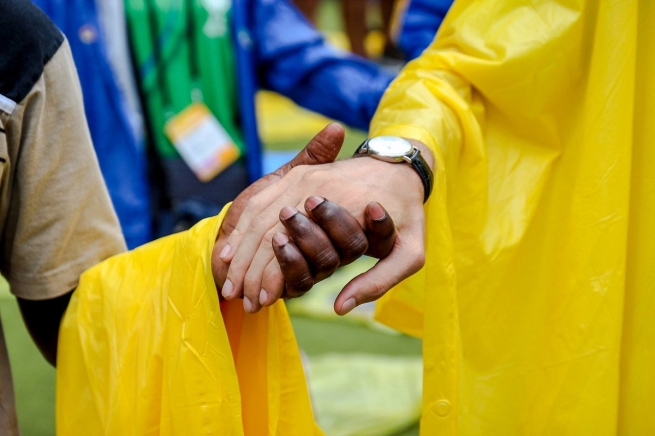Being on the move is an intrinsic condition of today's society, one that has become more apparent and problematic. Our peoples have always been enriched by the contributions of millions of people who left their homeland and brought with them their roots and their cultural heritage, making every country a richer place with new possibilities of life.
This encounter between people of different origins initially leads to tensions and misunderstandings, fear of what is different and a natural refusal to leave one’s safety zone. This often means that people end up building barriers and walls of defence. We are more comfortable with people who think and feel like us.
In today’s culture it is increasingly common to encounter those who are "different from us", and whether we like it or not, we have to decide how to relate to others. In our cities the real problem is not in welcoming the people who arrive, but rather our inability to listen. The city creates its barriers, and in many cases end up isolating newcomers. Those who go against this system and try to humanize it, are frequently opposed.
We face two options: we can continue to live our lives, keeping our distance, ignoring or rejecting those who are different; or we can start trying to get to know and understand them, to share our lives with the foreigners who arrive in our cities and respect them. The second option is probably the more difficult, but it is also the more courageous, because it forces us out of ourselves to make space for “the other”.


